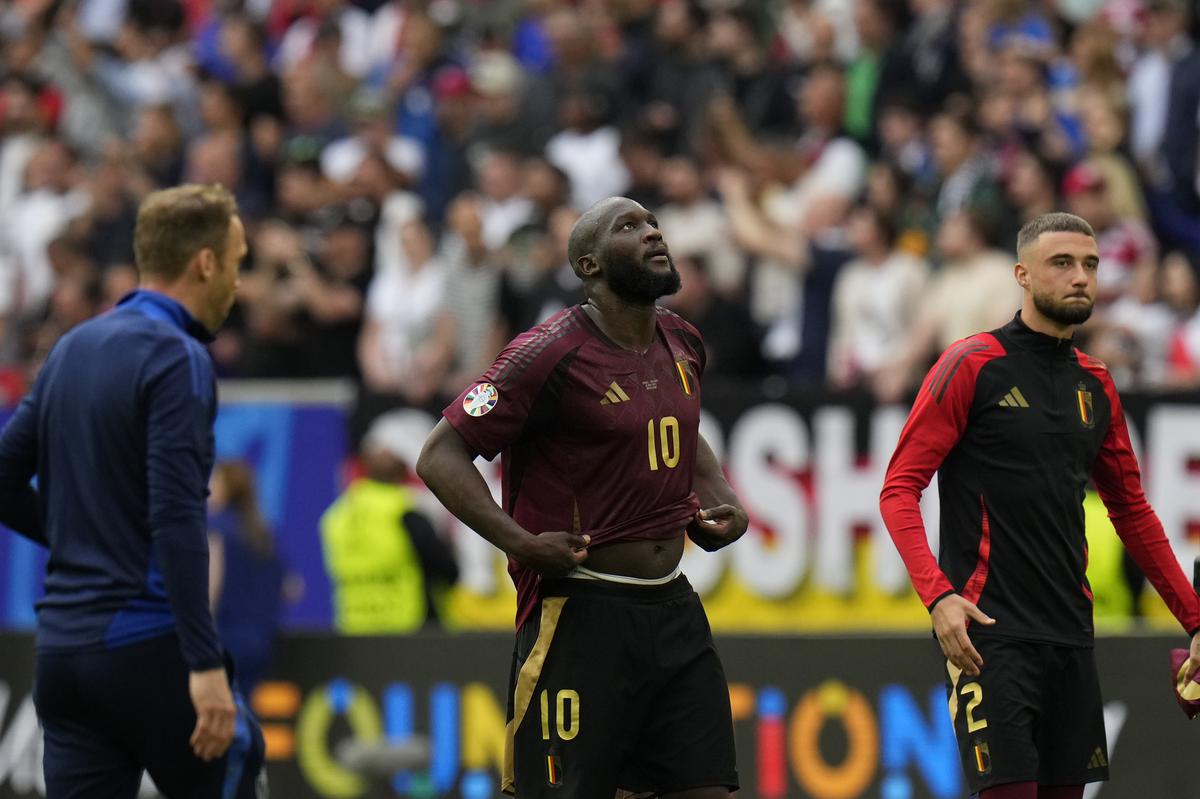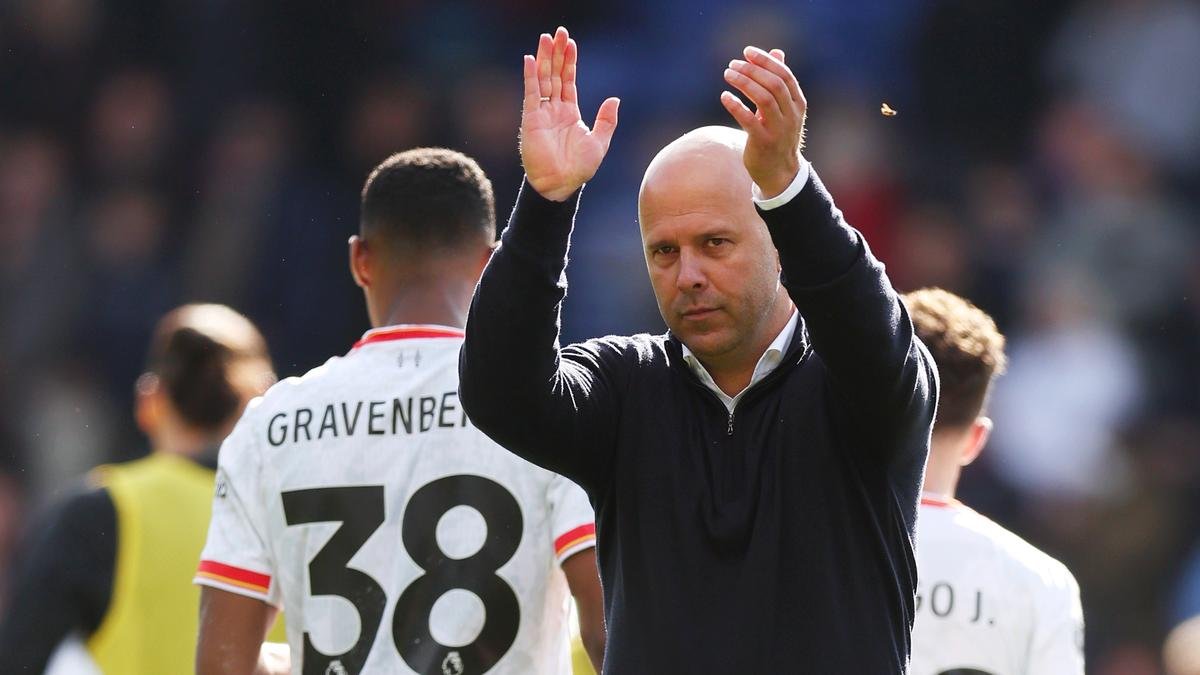While this edition of the European Championship has been highly entertaining with a total of 100 goals scored already, it has seen some new features introduced by UEFA to refereeing and VAR. (Video Assistant Referee)
UEFA introduced semi-automated VAR for this Euros, previously seen during the 2022 Qatar World Cup, which aims to make quicker and extremely precise decisions in critical situations. Although this has made the pace of the game a lot smoother and faster, there have been some controversial decisions, leading to some debate over the new technology.
WHAT IS SEMI-AUTOMATED VAR IN EURO?
The Semi-Automated technology (SAOT) in VAR which could become the norm for major leagues around the world.
It’s a technology supported by 10 specialised cameras in stadiums, including 29 body points tracked for every player.
This helps VAR make quicker decisions since the match officials are automatically notified by the system if a player is offside. The officials then have to verify and make a decision.
Another major factor here is that the SAOT doesn’t have the five-centimetre margin of error built into it like the older version of VAR and this has altered key decisions throughout the tournament.
POSITIVE IMPACT OF SEMI-AUTOMATED VAR
For the last couple of years, the games have been halted for long VAR checks, resulting in longer stoppage times ranging from seven to nine minutes as seen during the Qatar World Cup. This significantly took the pace out of the game.
Cut to Euro 2024, the stoppage times have come down to two to four minutes. This has made the game far more exciting since teams are going hammer and tongs to find the net in the limited time left. Twelve goals have been registered in the additional time in this Euros making sure most games are ending on a high note.
Ahead of the tournament, UEFA clarified that the referee won’t add the time wasted during celebrations and substitutions in the stoppage time and will instead focus on resuming the games quicker. With SAOTA and the new way of recording injury time, the games have been more entertaining to watch. However, it has had its fair share of flack as well.
CONTROVERSIAL VAR DECISIONS IN EURO 2024
Denmark knocked out by Germany in round of 16
The host nation Germany went past Denmark in the round of 16 in a game marred with controversial moments. In the 48th minute, Joachim Andersen’s goal, when the score was 0-0, was ruled out offiside.
Andreas Christensen played a chip into the box which first went to Thomas Delaney whose miss-kick was then converted by Andersen, but after a brief check, it was ruled that Delaney was marginally offside. If the old VAR had been in place, the goal would have been given since the offender was less than five centimetres ahead of the last German defender.
Three minutes later, Andersen was punished at the other end after his handball in the box led to a penalty to Germany, which was converted by Kai Havertz.
The handball rule has always been a tough one to judge since according to the law, the hand needs to be in an unnatural position for it to be adjudged as an offence, which is often quite subjective and the decision ultimately lies with the referee.
While the new ‘Snicko technology’ allows the officials to track the exact moment a ball is being handled, the referees’ subjective rulings have been harsh on the defenders thus far.
Lukaku’s three disallowed goals

Belgium’s Romelu Lukaku.
| Photo Credit:
AP
Belgium’s Romelu Lukaku.
| Photo Credit:
AP
Belgium’s Romelu Lukaku failed to register a single goal in the Euros despite putting the ball in the net thrice in the group stages. Although his first goal was correctly ruled offside against Slovakia, the second one which could have been an 86th-minute equaliser was cancelled because of a hand-ball offense by Lois Openda during the build-up play. The disallowed goal caused plenty of stir.
Openda accidentally struck the ball with his fingers while holding off a defender before he slotted the cross in for Lukaku. It was a faint touch not entirely visible to the naked eye, which could have been missed by the officials with the older version of the VAR. But the new snicko tech showed a spike, which led to the goal being disallowed.
In the following game against Romania, Lukaku again had a goal ruled out because parts of his body were marginally offside. Although this was an extremely close call, it took VAR only 46 seconds to make that decision, an indication of the swiftness of SAOT.
Dumfries offside call against France:
France’s Mike Maignan and Netherlands’ Denzel Dumfries look on as Netherlands’ Xavi Simons scores their first goal before it is disallowed after a VAR review.
| Photo Credit:
REUTERS
France’s Mike Maignan and Netherlands’ Denzel Dumfries look on as Netherlands’ Xavi Simons scores their first goal before it is disallowed after a VAR review.
| Photo Credit:
REUTERS
Another big moment that shaped the overall standings of Group D was in the Netherlands’ goalless draw against France in which a goal was disallowed due to a peculiar offside call.
It appeared that Xavi Simons had scored in the 69th minute from inside the box but his teammate, Denzel Dumfries, was in an offside position, despite not being in contact with the ball. The referee called it offside because he obstructed the movement of French keeper Mike Maignan.
According to the rulebook, it was a fair decision and the referee Anthony Taylor and his linesman ruled it offside after it took the VAR a long check of 2 minutes and 47 seconds to arrive at the same decision.
IS THIS THE RIGHT WAY AHEAD FOR VAR?
In 2016 when VAR was first introduced by FIFA in 2016, the aim was to only overturn clear errors and not undermine the authority of the match referee.
It seems like it has strayed far away from its original motto. In this edition of the Euros, the referees are not even allowed to go to the monitor to confirm their decision and are only permitted to do so when they need to change the decision.
Like with the Simons goal, despite Taylor and his team calling it offside on the pitch, there was a long check to see if the referee got it right which isn’t what VAR was envisioned to be.
“Michael Oliver (referee) is not making this decision,” Premier League coach Ange Postecoglou said of the penalty awarded in the Denmark game. “If I hear one more person saying that they’re not re-refereeing a game, I will blow up. I don’t think that is why we brought in technology for that decision.”
Despite such comments by pundits ans the general unhappiness of the fans, UEFA seems to be happy with the way SAOT has worked out in the Euros.
“SAOT is working very, very well, we are super happy,” UEFA’s head of refereeing Roberto Rosetti said in a review of match officials’ performance after the group stage.
VAR has intervened 24 times, eight times leading to a goal and 12 times disallowing them.
Additionally, when there was a recent vote among Premier League clubs about scrapping VAR next season, the final vote was 19-1 to keep it, clearly indicating that VAR is here to stay.
Celebrated coach Jose Mourinho famously quoted, “Only thieves can complain about the introduction of security cameras,” while talking about VAR.





